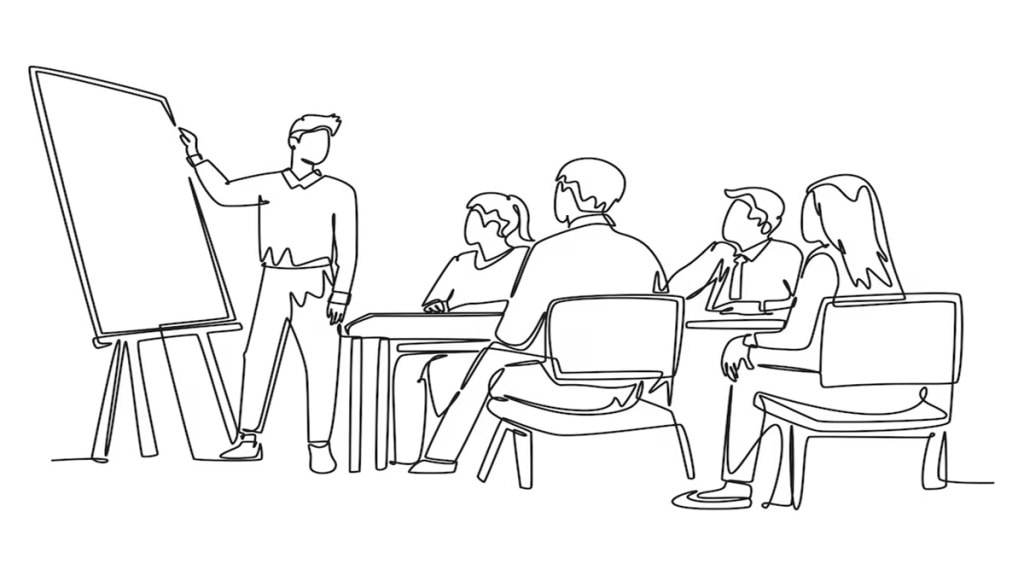By Ashok Pandey
As India engages in intense civic debates – from the separation of powers between the judiciary and Parliament to the Waqf Bill, and the evolving dynamics of Centre-state relations – one space remains conspicuously silent: our classrooms.
Schoolteachers, expected to remain neutral, often hesitate to bring current affairs into their teaching, particularly when the issues are politically sensitive. Yet this silence comes at a cost. In a democracy, classrooms are not just venues for academic instruction – they are sites of civic formation. They shape how young people understand power, justice, dissent, and responsibility – the very pillars of a just and sustainable society.
Why this matters now
Today’s India is vibrant, yet the rise of noisy debates, declining civic literacy, and the erosion of civil discourse pose real threats to our democratic values. In this context, teachers have an indispensable – yet largely unacknowledged – role to play. Not as activists or partisans, but as facilitators of democratic inquiry and ethical reflection.
The civic role of teachers
Teaching is, at its core, a civic act. Every question posed, every discussion encouraged, and even every silence held shapes a student’s understanding of the world and their place within it. This does not require teachers to express personal views. Rather, it calls on them to create space for students to develop their own – guided by evidence, constitutional values, and respectful dialogue.
Consider, for instance, the recent debate on the separation of powers stemming from a Supreme Court judgment under Article 142 of the Constitution. A teacher might ask:
“Why does our Constitution mandate a separation of powers? How do checks and balances protect democracy?” The goal is not to provide answers but to frame the inquiry – to illuminate the issue and enable thoughtful engagement.
How to teach without taking sides
There are principled and practical ways to engage civic issues without crossing the boundaries of neutrality:
1. Anchor in the Constitution: Use the Preamble, fundamental rights, and duties as a moral compass to guide inquiry.
2. Frame civic questions, not partisan ones: Shift the discourse from “Who is right?” to “What does this mean for our democracy?”
3. Encourage research and discernment: Guide students to explore primary sources – court rulings, legislative texts, verified journalism – and assess them critically.
4. Create safe, respectful environments: We must equip teachers with frameworks and institutional support to facilitate civic inquiry without fear of misinterpretation or reprisal.
The National Education Policy (NEP) 2020, in section 4.23, explicitly emphasises the promotion of constitutional values, including fundamental duties, human rights, and responsibilities of citizenship. Embedding this into classroom discourse is not just desirable – it is policy-aligned and nationally-mandated.
Challenges and courage
Teachers face real dilemmas. They risk being misunderstood, misquoted, or caught in political crossfire. Yet their quiet courage in nurturing civil discourse is essential to the long-term vitality of our democracy. The NEP envisions a citizen who is “ethical, rational, and prepared for democratic participation.” That vision cannot be realised without educators who embody and foster those very ideals.
As Amartya Sen reminds us in ‘The Argumentative Indian’: “The argumentative tradition is not just a historical curiosity; it is of profound contemporary relevance.” To nurture young citizens through civic dialogue is not to defy Indian tradition – it is to live up to it.
Towards a civic reawakening
A teacher is not just a subject-matter expert, but a citizen of conscience – someone who facilitates truth-seeking, nurtures empathy, and builds the habits of democratic life. In every classroom that privileges reflection over reaction, dialogue over dogma, and curiosity over conformity, we keep the spirit of the Republic alive.
The author is an educationist, author, and chairperson of the Council for Global Citizenship Education (GCF). Views are personal
Disclaimer: Views expressed are personal and do not reflect the official position or policy of FinancialExpress.com. Reproducing this content without permission is prohibited.
